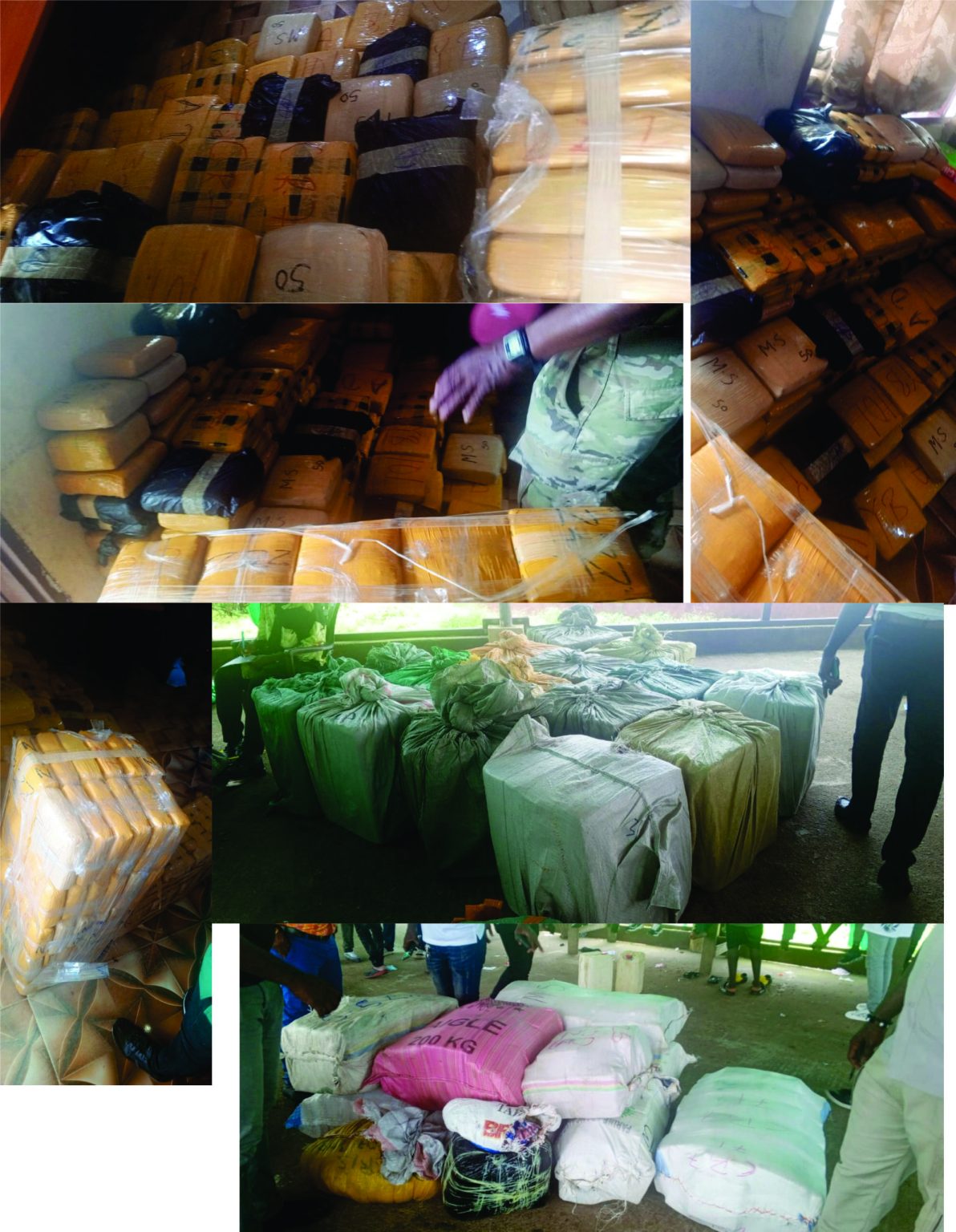In an extensive campaign targeting drug-related activities across Liberia, the Liberia Drug Enforcement Agency (LDEA) reported significant drug seizures totaling US$1 million between September 2024 and mid-October 2024. A significant portion of these confiscations occurred primarily in Montserrado County, which accounted for an overwhelming 98% of the total haul, while Grand Cape Mount County followed with a mere 2%. The drugs seized consisted mainly of 80% Kush, 17% Cocaine, and 2% Marijuana. The total worth of the seized drugs in September alone was reported to be US$1,062,867.57, equivalent to over 201 million Liberian dollars, indicating a concerning level of drug consumption in the country.
The enforcement actions led to the apprehension of 40 suspects, including 30 Liberians, five Nigerians, four Sierra Leoneans, and four Guineans. Among the arrested individuals were 31 males and nine females, underscoring the diverse demographic involved in the drug trade within the region. The LDEA noted that other counties exhibited minimal levels of drug consumption, almost registering zero drug-related activities. This disparity raises questions about the distribution and accessibility of drugs across different regions of Liberia.
In a concerning incident reflecting on internal agency conduct, the LDEA reported the arrest of two agents, Roland Hne and Abel Cranshaw, following their unlawful possession of 14.2 grams of kush in River Gee County. Their case illustrates the challenges faced in maintaining drug enforcement integrity, as both agents are currently under investigation for their actions involving drugs worth US$284. The LDEA emphasized its commitment to rigorously investigating any misconduct within the agency, particularly when agents themselves are implicated in illegal drug activities.
The LDEA took additional actions against volunteer Agent Faith N. Toe, who was reprimanded for violating road safety protocols after being recorded riding a motorcycle without a helmet. This incident, captured in a widely circulated social media video, resulted in an investigation by the agency’s Board of Internal Inquiry and Professional Standards (BIIPS). Agent Toe admitted her wrongdoing and expressed remorse, highlighting the agency’s dedication to upholding safety standards. The LDEA’s swift response to the video reinforces the broader expectations of accountability among its agents.
In another related incident, two volunteer agents, Abraham Goffa and Varney Jusu, faced suspension for misconduct after reportedly taking personal belongings from suspects during a raid in Monrovia. Their actions were deemed a violation of the LDEA’s code of conduct, leading to a thorough investigation by BIIPS, which confirmed the allegations against them. The agency acted promptly by returning the seized items to their owners and demanding that the suspended agents return any LDEA property and stop their duties, underscoring the LDEA’s intolerance for ethical breaches.
Overall, the recent activities reported by the LDEA provide a mixed picture of drug enforcement in Liberia. While the agency successfully confiscated significant amounts of illegal substances and held several individuals accountable, the internal issues involving its agents pose significant challenges to its credibility. The LDEA’s commitment to maintaining ethical standards within its ranks, alongside efforts to curb drug trafficking, will be crucial in establishing trust with the communities it serves and successfully tackling the ongoing issue of substance abuse throughout the nation.














